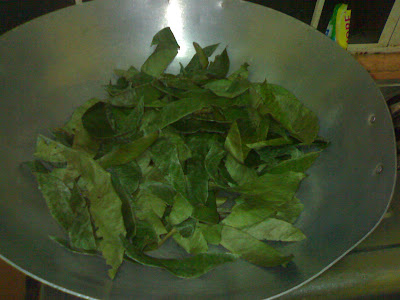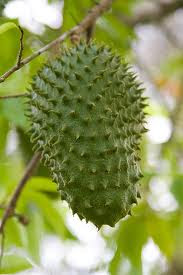As a child, I've known this fruit as Babana. But it is famous as Guyabano or Graviola or Soursop (Annona Muricata). It was introduced to me by my father. Although sour and sweet but I easily learned to like it. As I grew up I seldom see this fruit in the market. Until one day I heard about it and its amazing benefits.
Guyabano - an excellent cancer cure!
Research shows that with extracts from this miraculous tree it now may be possible to attack cancer safely and effectively with an all-natural therapy that does not cause extreme nausea, weight loss and hair loss.
Protect your immune system and avoid deadly infections. Feel stronger and healthier throughout the course of the treatment. Boost your energy and improve your outlook on life
The source of this information comes from one of America ’s largest drug manufacturers, the fruit of over 20 laboratory tests conducted since the 1970’s!
Extracts from the tree were shown to effectively target and kill malignant cells in 12 types of cancer, including colon, breast, prostate, lung and pancreatic cancer.
The tree compounds proved to be up to 10,000 times stronger in slowing the growth of cancer cells than Adriamycin, a commonly used chemotherapeutic drug!
What’s more amazing is that, unlike chemotherapy, the compound extracted from the Guyabano tree selectively hunts down and kills only cancer cells. It does not harm healthy cells!
The amazing anti-cancer properties of the Guyabano tree have been extensively researched but we haven't heared about it. Well, for obvious reason - money and power.
One of America ’s biggest billion-dollar drug makers began a search for a Cancer cure and their research centered on Guyabano, a legendary healing tree from the Asian and Amazon Rainforest.
Various parts of the tree–including the bark, leaves, roots, fruit and fruit-seeds–have been used for centuries by medicine men and native Indians in South America to treat heart disease, asthma, liver problems and arthritis. Going on very little documented scientific evidence, the company poured money and resources into testing the tree’s anti-cancerous properties—and were shocked by the results. Guyabano proved itself to be a cancer-killing dynamo.
The company had one huge problem with the Guyabano tree–it’s completely natural, and so, under federal law, not patentable. There’s no way to make serious profits from it.
The drug company invested nearly seven years trying to synthesize two of the Guyabano tree’s most powerful anti-cancer ingredients. If they could isolate and produce man-made clones of what makes the Guyabano so potent, they’d be able to patent it and make their money back. Unfortunately, the original simply could not be replicated. There was no way the company could protect its profits—or even make back the millions it poured into research.
Luckily, however, there was one scientist from the research team whose conscience wouldn’t let him see such atrocity committed. Risking his career, he contacted a company that’s dedicated to harvesting medical plants from the Amazon Rainforest and blew the whistle.
When researchers at the Health Sciences Institute were alerted to the news of Guyabano, they began tracking the research done on the cancer-killing tree. Evidence of the astounding effectiveness of Guyabano–and its shocking cover-up–came in fast and furious.
The National Cancer Institute performed the first scientific research in 1976.. The results showed that Guyabano’s “leaves and stems were found effective in attacking and destroying malignant cells. Inexplicably, the results were published in an internal report and never released to the public.
Since 1976, Guyabano has proven to be an immensely potent cancer killer in 20 independent laboratory tests, yet no double-blind clinical trials–the typical benchmark mainstream doctors and journals use to judge a treatment’s value–were ever initiated.
A study published in the Journal of Natural Products, following a recent study conducted at Catholic University of South Korea stated that one chemical in Guyabano (Annona Muricata) was found to selectively kill colon cancer cells at “10,000 times the potency of (the commonly used chemotherapy drug) Adriamycin.
The most significant part of the Catholic University of South Korea report is that Guyabano (Annona Muricata) was shown to selectively target the cancer cells, leaving healthy cells untouched. Unlike chemotherapy, which indiscriminately targets all actively reproducing cells (such as stomach and hair cells), causing the often devastating side effects of nausea and hair loss in cancer patients.
A study at Purdue University recently found that leaves from the Guyabano tree killed cancer cells among six human cell lines and were especially effective against prostate, pancreatic and lung cancers.





















